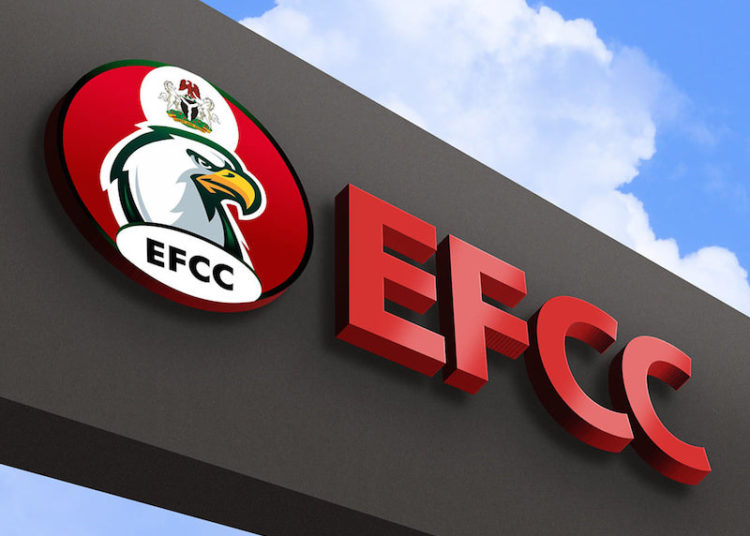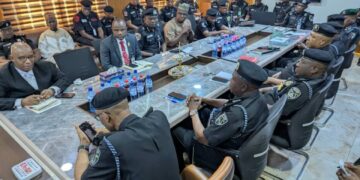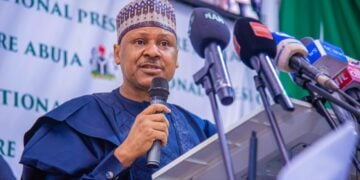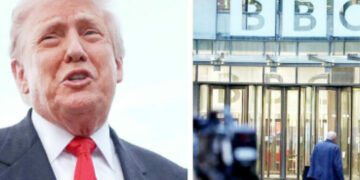Sometimes in 2015 after the electoral triumph of the All Progressives Congress (APC) in the presidential poll, I visited the morgue of the General Hospital in Kachia Local Government Area to complete arrangements for a hearse to transport a relative’s remains the following day. After payment of the necessary fees, my attention was drawn to the presence of labourers extending the walls of the hospital far into the bush.
I asked one of the staffers why the walls were being extended, insisting that the money could be deployed to rehabilitate some dilapidated structures in the hospital that were then an eyesore. His response pointed to the fear of Buhari: “The job for the construction of the walls of the hospital was awarded by the then Petroleum Trust Fund (PTF) that was under the leadership of General Muhammadu Buhari (retd). Shortly after he relinquished the chairmanship position of the Fund, the contractor simply vanished into thin air. He just returned last week to continue the work, after several years of abandoning the job. He is afraid that General Buhari, now elected as president, may smoke him out and bring him to justice”.
I recall the sanguinity of the electorate and apprehension of the corrupt that trailed the electoral victory of the Daura General in 2015. His stern visage and his vow to tackle corruption made many to believe that he was one to clean the Augean stable that Nigeria had become. Many flustered citizens, especially his swarming supporters and admirers, had hoped that the old iron horse of truth, as demonstrated in what he did during those unforgettable months as Head of State, could still turn the tables against dishonesty. The country stood still as other Nigerians who claimed to know him better advised rabid supporters of the new administration not to be over hopeful.
Two months before the inauguration of Buhari as president in May 2015, the Abuja Electricity Distribution Company (AEDC) improved power supply in the nation’s capital, with many FCT residents predicting that it was a sign of good days to come for a nation that was more at home with power outages than uninterrupted power supply. The hope of the electorate on the gangling retired Army General got boosted as the optimism of APC members kept aflame the promise of a new day where the monster of corruption was to meet its waterloo.
After the inauguration of the APC-led government on May 29, 2015, the optimism that the new government may end insecurity, tackle fraud and improve the economy took a serious bashing. Instead of the new administration hitting the ground running, the government simply hit the ground and went to sleep. Despite the sloppiness in assembling a team that could deliver, the then newly inaugurated president started receiving briefings from federal permanent secretaries. What happened to the transition report put together by a team of experts led by the Federal Permanent Secretary, Mallam Ahmed Joda? Many Nigerians wondered aloud with no answers.
As criticisms and discordant tunes ripped through the early months of the Buhari-led administration, presidency officials merely described such critics as attempts to defend the sleaze-ridden old system which Buhari’s new order had sworn to annihilate. In essence, corruption, they alleged, was fighting back. To caution Nigerians entertaining high hopes on the then new government’s capacity to clean the rot, the president himself advised his fellow countrymen and women to take it easy, as age was bound to affect his performance. It was timely advice, and the months ahead would prove that not much should be expected from the old soldier. The period spent in London attending to his failing health and non-improvement of the economy, including the spiralling level of terror attacks on communities, were reflective of the fact that realising Buhari’s electoral promises was burdened with difficulties.
None of the three areas promised by the APC-led government has thrown up anything for cheers. Insecurity has turned the country into a vast killing field; the poor economy of the country has turned Nigeria into the global Headquarters of Poverty and the walls that secure corruption are now surrounded by indomitable forces.
The present government has not demonstrated any rational basis in convincing Nigerians there is less corruption under its watch when compared with the Jonathanian era that was then constant butts of Nigerians. However, that is not to deny the fact that some few officials of the incumbent government are determined in the fight against graft. Their determination, however, is stifled by the many whose corrupt records, when exposed, would go down as one of the most unprecedented and shattering in global corruption ranking.
Last week, the Accountant General of the Federation (AGF), Mr. Ahmed Idris, a man described as one of the forerunners of the Buhari anti-graft crusade, was forced to the interrogation room of the Economic and Financial Crimes Commission (EFCC), after he failed to honour several invitations over suspicious expenditures amounting to N80 billion. The money involved in the alleged scam would grow to N170 billion this week. The alleged multi-billion naira fraud is linked to funds spent on payments to some consultants and other business owners suspected to be his fronts. The allegation that Idris was engaged in fraudulent deals was first made in 2020. One of my sources had contacted me to organise a media exposure on the man, with the sole purpose of pressuring the government not to extend his tenure beyond his retirement date.
Unknown to the source pleading with me to undertake such a media blitzkrieg on Idris, Buhari had extended the AGF’s tenure for another four years in June 2019. Though he was expected to retire on 25th November, 2020, when he turned 60, it was the prerogative of Mr. President to extend his tenure which does not violate any section of the laws as it was a political appointment. A coalition of groups would later stage demonstrations calling for the removal of the Kano-born financial accountant.
Many that are conversant with happenings in the AGF office are not shocked. Those acquainted with the operations of past AGFs are quick to note that it is almost an impossible feat to come out corruption-free when appointed to head Nigeria’s Treasury House. Some of Idris’ successors were removed on account of corruption, running into billions of naira. For now, Idris, who was released on bail by the anti-graft commission, remains innocent until proven guilty by a competent court of law. When a country’s treasury is preyed upon, it gives license to others in commanding heights of government agencies to do what they want. Alleged cover-ups of corruption may be the reason why some people deny the existence of rot and sleaze in the system. The truth remains that the monster called corruption has grown too strong and almost indefatigable to be defeated.
While during the PDP days, proceeds of corruption were shared, corruption under the APC-led government is a silent movie that only makes the few swim in obscene wealth. The president and a few of his officials may be committed in the fight against corruption, but there are few fraudulent elements causing financial losses for the country. Some of these heads of agencies do not only engage in financial mismanagement, they swim in it. While the PDP was seen to have some merciful thieves, the APC do have merciless thieves who derive much pleasure in hiding their loot in dollars and other foreign currencies.
Cleansing the nation of financial misappropriation should be an earnest effort that must never be compromised. The EFCC Chairman, Mr. Abdulrasheed Bawa, should never relent on his oars in bringing to book officials of government that have embraced corruption as a standard practice. He must not spare any stone to stop the present silent democratisation of corruption that has thrown this country into a dungeon of hopelessness. It is only after May 29, 2023, that Nigerians may come to realise that corruption has now gained a deeper foothold. For now, let us watch the movie: ‘The Idris Saga’.





